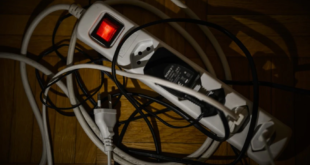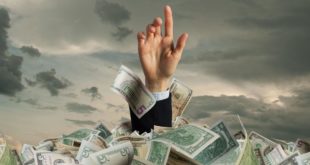With inflation recently hitting a high not seen since 1981, it is now apparent that the factors that drove the disinflation trend of the last four decades are coming to an end. Globalization and demographics, the two big factors that combined to hold down prices and wages for so long, are reversing, and so too is the downtrend in prices, wages, and interest rates. While 1970s levels of inflation seem unlikely, several trends are converging to keep upward pressure on...
Read More »Weekly Market Pulse: Did Powell Just Blink?
Did Jerome Powell blink last Friday? It was just before the market open Friday and interest rates were jumping higher, as they had all week. The 10-year Treasury yield was up to 4.33%, another 11 basis points higher than the previous close and 32 basis points higher than the previous week’s close. Then, “the article” hit the front page of the WSJ: Fed Set to Raise Rates by 0.75 Point and Debate Size of Future Hikes By Nick Timiraos The article led with this quote:...
Read More »BOJ Injects More Volatility, while UK’s Tory Party Leadership Contest may be Over Today
Overview: Japanese efforts to curb the weakness of the yen provided drama today. What many suspect was intervention before the weekend was wearing off and officials may have sold dollars again today in front of JPY150. Despite initial success, the dollar is back near JPY149.50 as the North American session is about to begin. The end of the Chinese Congress has seen the yuan weaken to new lows. While the large bourses in the Asia Pacific region rose, China and Hong...
Read More »Energy crisis ‘will last many years’, says economics minister
Parmelin said that before the end of March next year the risk of a shortage was very small © Keystone / Jean-christophe Bott Swiss Economics Minister Guy Parmelin assumes the energy crisis will last several years. It is important, he says, not only to think about the winter, but to do everything to ensure that Switzerland produces more energy – that means more renewable energies and greater efficiency. In 2023 and 2024 Switzerland will still be dependent on oil...
Read More »Wealth Managers Reluctant to Invest in Crypto
Wealth managers around the world are still reluctant to invest in cryptocurrency on behalf of their clients amid concerns over the lack of regulation, the lack of education as well as high volatility, a new study by American asset management company Mercer found. The survey, which polled 125 wealth managers worldwide, found that just 8% of participants indicated having invested in crypto for their customers. Wealth managers in Europe were found to be the most open to...
Read More »Man convicted for fraudulently claiming massive Covid loan
Many people have struggled to make ends meet during the pandemic © Keystone / Christian Beutler A 48-year-old businessman in Geneva has been given a two-year suspended prison sentence for making a fraudulent claim for a Covid loan that was 100 times the correct amount. He was found guilty of fraud and forgery of documents. “You expressly deceived the authorities in connection with the coronavirus pandemic,” the judge at Geneva Criminal Court said on Friday. “Your...
Read More »Swiss companies ‘trapped’ in Russia
Swiss Army knives are very popular in Russia, the fifth-largest market for manufacturer Victorinox © Keystone / Gaetan Bally Leading Swiss brands have withdrawn from Russia because of the war in Ukraine. However, research by a Swiss newspaper shows that while a company can leave a country, its products often remain on shelves. “It’s a mass exodus. Since Russia invaded Ukraine in February, thousands of foreign companies have left the country. Some with grand...
Read More »The Recession in the Productive Sector Is Here
Governments and central banks have become the lender of first resort instead of the last resort, and this is immensely dangerous. Global debt soars, inflation creeps in, and many of the so-called supply chain disruptions are the result of zombification after years of subsidizing low productivity and penalizing high productivity with increased taxes. There are many reasons why nations should not “spend now and deal with the consequences later.” First, the spending is...
Read More »“Spend Now, and Deal with the Consequences Later” Is the Worst Policy
Quantitative easing was designed as a tool to provide time for governments to implement structural reforms, boost growth, and strengthen the economy. However, it has become a tool to increase the size of government and take increasingly riskier levels of debt. The United States economy has not strengthened in the period of enormous fiscal and monetary stimuli, as the latest data shows. It needs increasing units of debt to generate a new unit of gross domestic product...
Read More »Alex Jones Got What He Deserved, Part 3
There are five additional points that have been made about the Alex Jones case that I wish to address, four of which were expressed in emails to me and one of which was expressed in an article published today by Judge Andrew Napolitano. (See part 1 and part 2 of this series here and here.) 1. Some of Jones’s supporters say that the Connecticut trial was a “kangaroo” proceeding because the judge excluded matters that Jones wanted to tell the jury. But it’s important...
Read More » Swiss Economicblogs.org
Swiss Economicblogs.org









